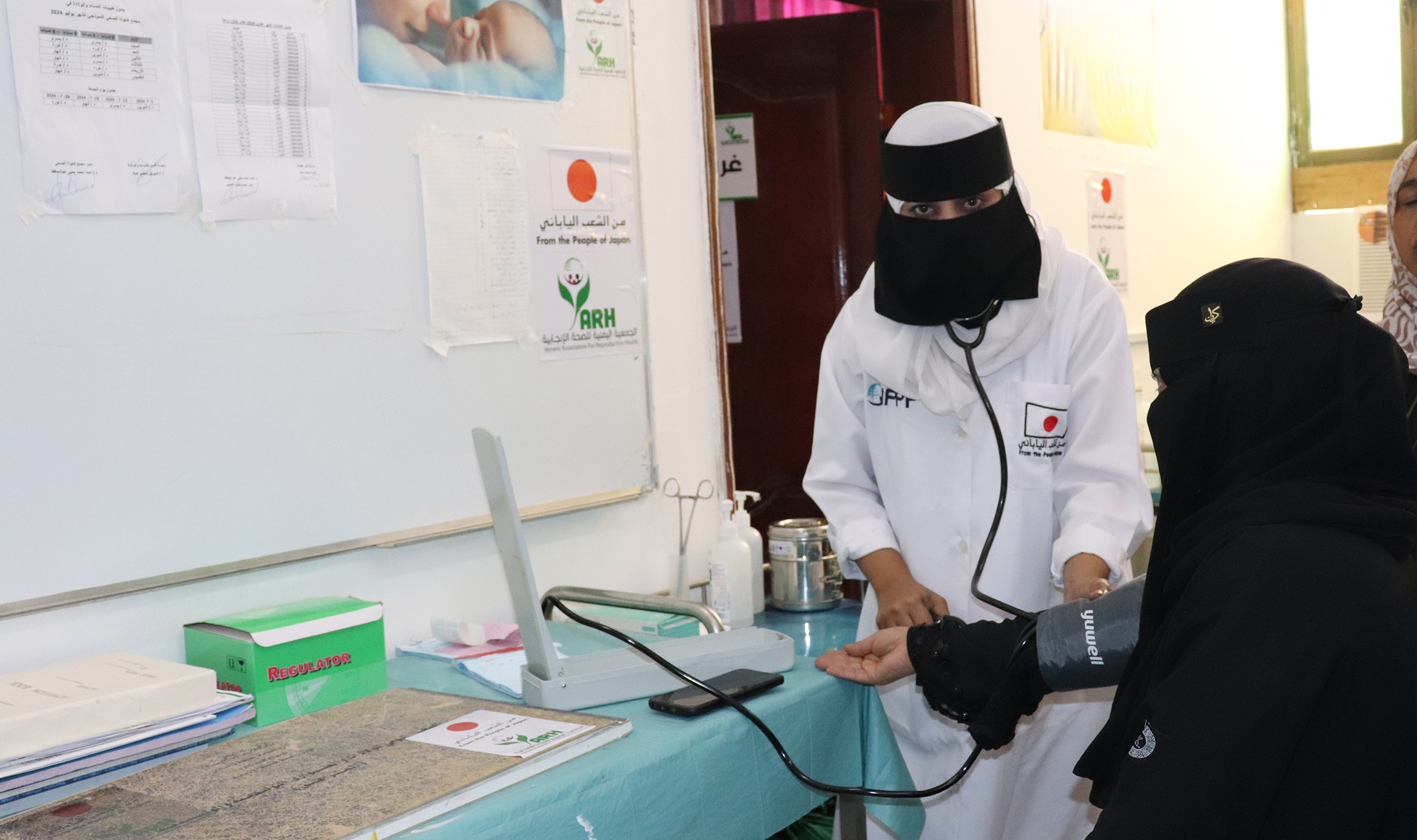Latest press releases
A selection of stories from across the Federation

US Government Expands Global Gag Rule in a Major Escalation of Regressive Foreign Policy
FOR IMMEDIATE RELEASE
For media enquiries
Telephone:
+44 7918 845944Email IPPF:
Email: media@ippf.org

| 05 August 2025
Over 1.4 Million Women and Girls in Africa Left Without Contraception as U.S. Orders Destruction of Global Supply
6 August 2025 - The International Planned Parenthood Federation (IPPF) has learned that over $9.7 million worth of US-funded contraceptives are now set to be incinerated in France. Seventy-seven percent of these essential supplies were earmarked for five countries in the Africa Region - including the Democratic Republic of the Congo (DRC), Kenya, Tanzania, Zambia, and Mali — many of which are already facing severe humanitarian crises. The incineration of these contraceptives will deny more than 1.4 million women and girls access to life-saving care. Rather than reaching the communities who need them most, these essential medical supplies - many of which don’t expire until 2027 to 2029 - are being needlessly and egregiously destroyed.IPPF Member Associations in the affected countries were due to receive a share of these contraceptive stocks. Instead, they are now facing a sharp decline in supply following the decision to incinerate them. More than 40% of the total value of the contraceptive stockpiled in Brussels was allocated for shipment to Tanzania alone. Dr Bakari Omary, Project Coordinator at UMATI, IPPF’s Member Association in Tanzania, said: “We are facing a major challenge. The impact of the USAID funding cuts has already significantly affected the provision of sexual and reproductive health services in Tanzania - leading to a shortage of contraceptive commodities, especially implants. This shortage has directly impacted clients' choices regarding family planning uptake.”This development adds a new layer of outrage to what is already a cruel political decision. These contraceptives were already manufactured, packaged, and ready for distribution. IPPF offered to take them for redistribution at no cost to the US taxpayer, but this offer was declined. The actions of the U.S. administration make it clear that politics trump economics, given the additional costs necessary for transportation, storage, and incineration of these products. “This decision to destroy ready-to-use commodities is appalling and extremely wasteful. These life-saving medical supplies were destined to countries where access to reproductive care is already limited, and in some cases, part of a broader humanitarian response, such as in the DRC. The choice to incinerate them is unjustifiable and undermines efforts to protect the health and rights of women and girls,” said Marie-Evelyne Petrus-Barry, Africa Regional Director of IPPF.IPPF's local partners in Africa will now face increased challenges to deliver essential and life-saving care. According to RHSC, the loss of these supplies is projected to result in 362,000 unintended pregnancies and 110,000 unsafe abortions: Tanzania: 1,031,400 injectable contraceptives and 365,100 implants will not be distributed. These products represent over 50% of USAID annual support to Tanzania's health system and a terrifying 28% of the total annual need of the country.Mali: 1,100,880 oral contraceptives and 95,800 implants will be denied, 24% of Mali’s annual need.Zambia: 48,400 implants and 295,000 injectable contraceptives will be denied to women.Kenya: 108,000 women will not have access to contraceptive implants, 13.5% of its annual need. Nelly Munyasia, Executive Director for the Reproductive Health Network in Kenya (IPPF Member Association): “In Kenya, the effects of US funding disruptions are already being felt. The funding freeze has caused stockouts of contraceptives, leaving facilities with less than five months' supply instead of the required 15 months; reduced capacity building for health workers; disrupted digital logistics and health information systems, and caused a 46% funding gap in Kenya’s national family planning program. These systemic setbacks come at a time when unmet need for contraception remains high. Nearly 1 in 5 girls aged 15–19 is already pregnant or has given birth. Unsafe abortions remain among the five leading causes of maternal deaths in Kenya.” Sarah Durocher, President of Le Planning familial (IPPF’s French Member Association): “We call on the French government to take responsibility and act urgently to prevent the destruction of USAID-funded contraceptives. It is unacceptable that France, a country that champions feminist diplomacy, has remained silent while others, like Belgium, have stepped in to engage with the US government. In the face of this injustice, solidarity with the people who were counting on these life-saving supplies is not optional: it is a moral imperative.”“We will not stay silent while essential care is destroyed by ideology”, continued Marie-Evelyne Petrus-Barry.Notes: IPPF’s local partners in the countries affected include Reproductive Health Network Kenya, Chama cha Uzazi na Malezi Bora Tanzania, Association Malienne pour la Protection et la Promotion de la Famille, Planned Parenthood Association of Zambia, Association Burkinabé pour le Bien-Etre Familial and the Association pour le Bien-Etre Familial/Naissances Désirables.For more information or to interview one of our staff, please contact media@ippf.org or +66628683089. About the International Planned Parenthood Federation IPPF is a global healthcare provider and a leading advocate of sexual and reproductive health and rights (SRHR) for all. Led by a courageous and determined group of women, IPPF was founded in 1952 at the Third International Planned Parenthood Conference. Today, we are a movement of 158 Member Associations and Collaborative Partners with a presence in over 153 countries. Our work is wide-ranging, and includes services for sexual health and well-being, contraception, abortion care, sexually transmitted infections and reproductive tract infections, HIV, obstetrics and gynecology, fertility support, sexual and gender-based violence, comprehensive sex education, and responding to humanitarian crises. We pride ourselves on being local through our members and global through our network. At the heart of our mission is the provision of – and advocacy in support of – integrated healthcare to anyone who needs it regardless of race, gender, sex, income, and, crucially, no matter how remote.

| 08 April 2025
Japan Supports IPPF Yemen Project with $750,000 to Provide Critical Maternal and Reproductive Health Services
April 8th, 2025 - A new project titled "Providing Critical Sexual, Reproductive and Maternal Health Care to Internally Displaced People and Local Communities in Yemen" has been launched. Funded by the Government of Japan and implemented by IPPF Member Association in Yemen, the Yemeni Association for Reproductive Health (YARH), the project aims to enhance and sustain high-quality sexual and reproductive health (SRH) services and awareness for Yemen’s crisis-affected populations in Aden and Amran. Following years of conflict and instability, Yemen's humanitarian needs remain severe, with an estimated 19.5 million people in need of assistance (OCHA). Internally displaced persons (IDPs), returnees, and host communities are particularly affected, struggling to access essential maternal, newborn, and reproductive healthcare. The new funding will allow for expanded services, ensuring lifesaving care reaches more communities, particularly women, youth, and newborns. It aims to reduce maternal and newborn mortality and morbidity while improving care for survivors of gender-based violence. Additionally, community outreach and capacity-building programmes will empower individuals with the knowledge to make informed decisions about their sexual and reproductive health and rights. Key activities include: Renovating and upgrading two health facilities (one in each project governorate) to provide high-quality SRH, maternal and child health, and gender-based violence (GBV) services, as well as nutrition and cholera treatment. Ensuring IDPs, host communities, and returnees receive critical reproductive healthcare, including antenatal and postnatal care, family planning, and emergency obstetric and newborn care. Training healthcare professionals from YARH and other local health facilities in the Minimum Initial Service Package (MISP), Clinical Management of Rape, and sexual reproductive health in emergencies (SRHiE). Conducting 480 awareness-raising sessions led by trained peer educators to educate nearly 5,000 individuals on SRH, HIV, cholera, nutrition, and gender-based violence. Training 40 community and youth peer educators to strengthen SRH education and advocacy efforts in local communities. H.E. Mr. NAKASHIMA Yoichi, Ambassador of Japan to Yemen stated, “Ensuring access to quality maternal and reproductive health services for crisis-affected communities underscores our commitment to supporting vulnerable populations in Yemen. We look forward to beginning this new project”. Dr. Ali Norman, Executive Director of YARH, emphasised, “By strengthening health infrastructure, training healthcare workers, and engaging communities, we are improving the health and well-being of mothers, newborns, and families across the region. We are grateful for the support from the Government of Japan.” Dr. Fadoua Bakhadda, Regional Director of the IPPF Arab World Regional Office, added, “This support ensures that we can keep delivering essential SRH services to communities in greatest need. This funding will be transformative for women, children, and families in Yemen, particularly in underserved areas.” Over the course of this project, it is anticipated that: Over 10,000 women, newborns, and young people will receive quality SRH and maternal health services. 1,000 women will be reached with gender-based violence services. Over 4,000 internally displaced persons and host community members will receive information on sexual and reproductive health and rights, including GBV and other health services. Peer educators will be trained in communication skills, basic health, hygiene, and SRHR education. Healthcare service providers will receive specialised training to enhance the quality of SRH services in emergencies. About YARH Established in June 2009 as a not-for-profit voluntary non-governmental organisation, the Yemeni Association for Reproductive Health (YARH) is registered with the Ministry of Social Affairs and became an IPPF Member Association in 2010. Through two clinics and one youth-friendly service centre, YARH provides quality SRH services to people in Yemen. The organisation plays a key role in building strategic partnerships with other entities focused on young people’s programmes and actively involves youth in identifying, implementing, monitoring, and evaluating projects. YARH is a strong advocate for sexual and reproductive health and rights (SRHR). Key partnerships include the Ministry of Public Health (Department of Reproductive Health, National AIDS Programme, General Directorate for Women's and Child's Health), the Ministry of Youth and Sports (Scouts, Guides, and Sport Clubs), Sana’a University, the Population Research and Studies Centre, local NGOs active in reproductive health, private universities, and organisations focused on human rights, gender equality, and women's rights, including the Women's National Committee and the National Information Centre. About IPPF Arab World Office The International Planned Parenthood Federation (IPPF) Arab World Office is a leading healthcare provider and advocate for SRHR in North Africa and the Middle East. Established in 1971, it is one of IPPF’s six regional offices, supporting a network of member associations across the region. IPPF AWR is committed to delivering essential health services and championing reproductive rights, particularly in crisis and humanitarian settings.
















